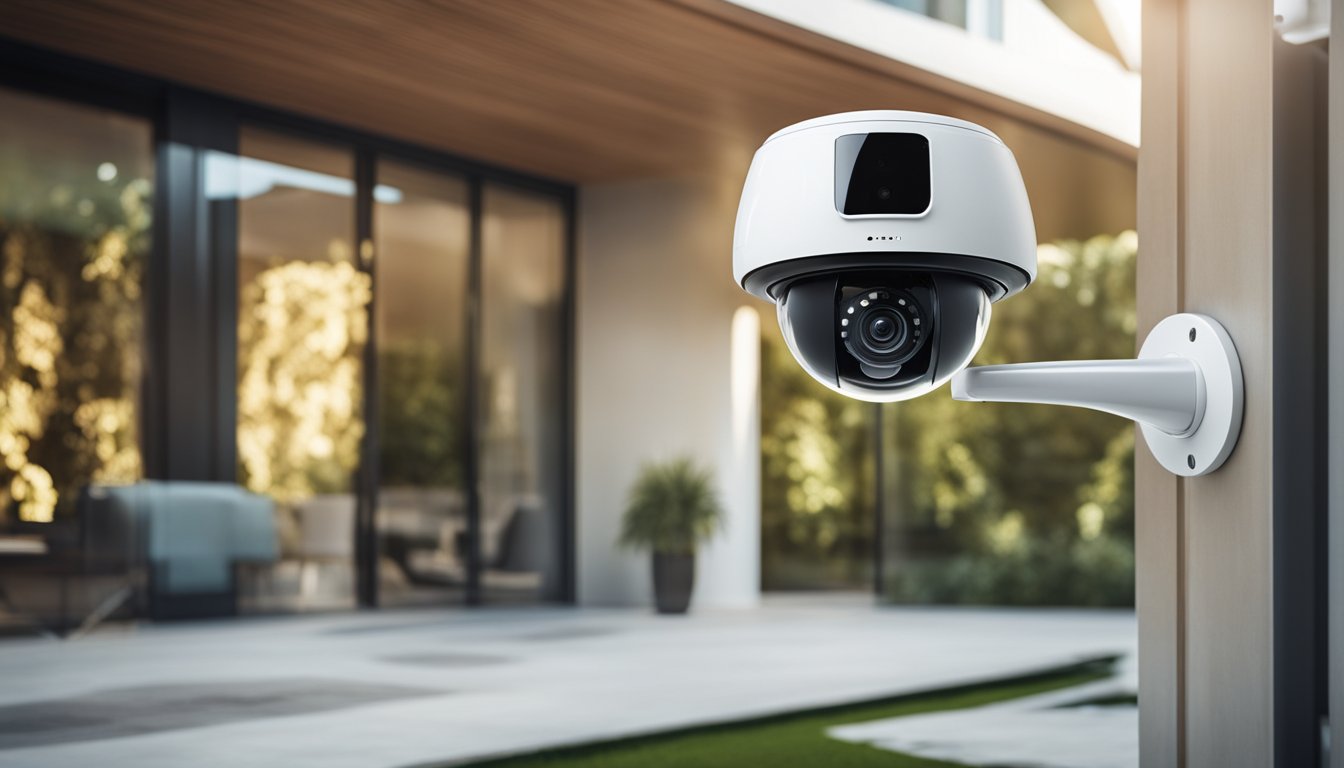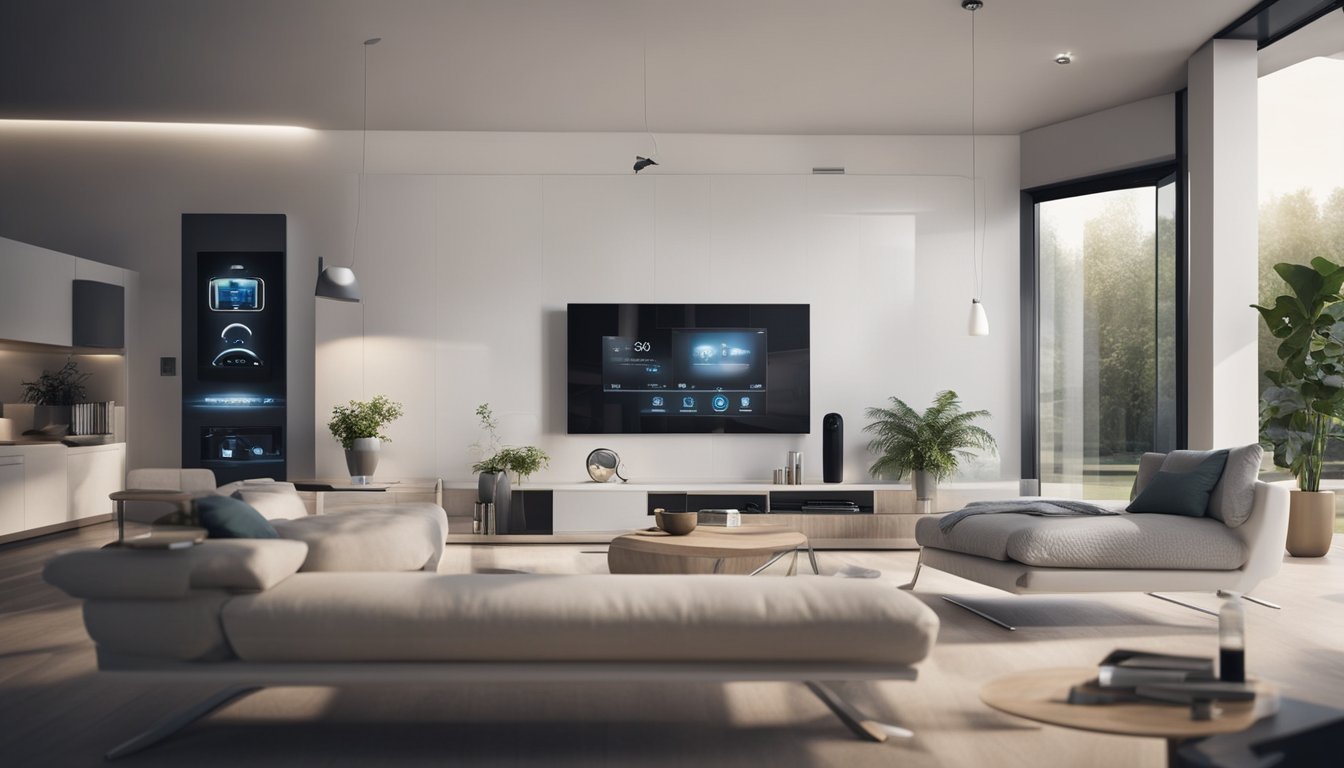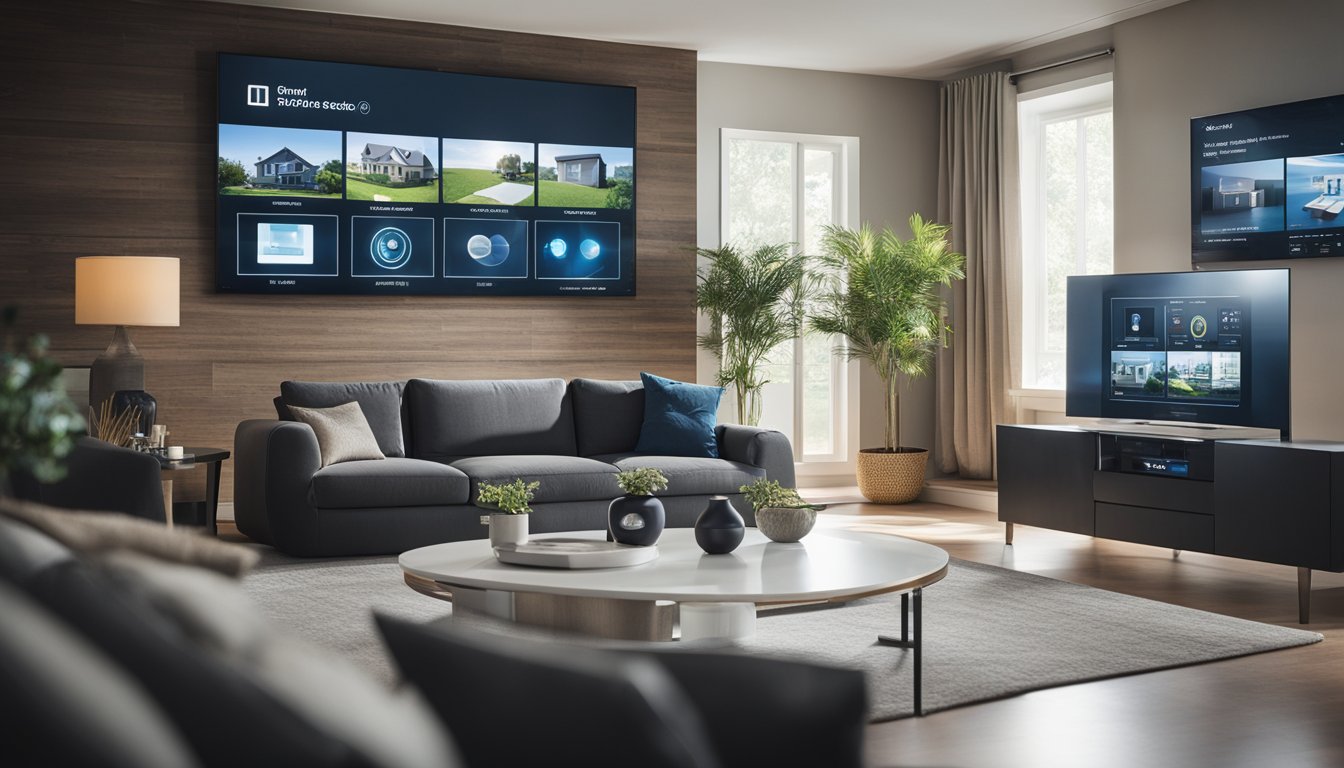Late updated: 02 Aug 2024 14:08
Written by: Elena Prescott
The Future Of Home Security Systems: Innovations And Trends
The future of home security systems is evolving at a rapid pace, driven by advancements in technology and growing consumer demand for enhanced safety and peace of mind. In 2024, smart home security systems are more accessible, affordable, and user-friendly than ever before. With innovations such as DIY setups, seamless integration with other smart home devices, and heightened cybersecurity measures, homeowners have a plethora of options to protect their homes effectively.

The rise of connected homes means that our security solutions must adapt to counter advanced cyber threats. This necessitates the implementation of robust firewalls, encrypted Wi-Fi systems, and consistent software updates to safeguard against potential breaches. We are also witnessing a shift towards systems that offer both self-monitoring and professional monitoring services, catering to different needs and budgets.
Moreover, companies like ADT and Ring have tailored their offerings to include 24/7 monitoring services and comprehensive customer support, ensuring that homeowners can rely on their security systems around the clock. These developments reflect a broader trend towards integration and convenience, making it easier for users to manage their security systems effortlessly.
Key Takeaways
-
Smart home security systems are increasingly accessible and user-friendly.
-
Enhanced cybersecurity measures are essential in connected homes.
-
24/7 monitoring and comprehensive support are becoming standard features.
Advancements in Smart Home Security Technologies

Recent advancements in smart home security technologies have revolutionised how we protect our homes. These advancements include intelligent surveillance, AI and machine learning integration, and the rise of innovative security devices.
Intelligent Surveillance Systems
One key development is the evolution of intelligent surveillance systems. These systems now integrate smart cameras equipped with high-definition video capabilities and facial recognition technology. Video doorbells have become common, allowing homeowners to see and speak to visitors remotely via their smartphones.
Additionally, advanced motion detectors have improved, providing better sensitivity and accuracy. These systems can distinguish between humans, animals, and other objects, reducing false alarms and enhancing overall security. Real-time alerts ensure immediate action can be taken when suspicious activity is detected.
The Role of Artificial Intelligence and Machine Learning
Artificial intelligence (AI) and machine learning (ML) are pivotal in modern home security systems. AI algorithms analyse data from various sensors to detect patterns and predict potential security threats. This predictive capability allows for pre-emptive measures, adding a proactive layer to home security.
Voice recognition has also become an essential feature. It enables smart home systems to recognise authorised users' voices, preventing unauthorised access. Furthermore, AI-driven smart locks offer enhanced security by learning user behaviours and identifying irregular activities.
Emerging Trends in Home Security Devices
Several emerging trends are shaping the future of home security devices. Integration of the Internet of Things (IoT) has led to a more connected home environment, where devices such as smart locks, video doorbells, and indoor and outdoor smart cameras work seamlessly together.
Moreover, sensors now include capabilities like temperature and humidity monitoring. These multi-functional sensors provide comprehensive environmental data, enhancing the overall home security system. Innovations like biometric authentication are also becoming more widespread, offering secure, user-friendly access controls.
In summary, advancements in smart home security technologies empower us to safeguard our homes more effectively, with intelligent surveillance, AI integration, and cutting-edge devices leading the way.
Integration, Convenience, and System Management

The evolution of home security systems brings exciting innovations, enhancing both integration and user convenience. Our focus is on seamless ecosystems, practical self-monitoring, and the financial aspects of these advanced systems.
Seamless Smart Home Ecosystems
Modern home security systems rely on seamless integration with various smart home devices. These security setups connect with IoT-enabled gadgets, such as smart locks, doorbell cameras, and motion detectors. This interoperability offers comprehensive security coverage.
Connecting devices is straightforward and user-friendly. For instance, one might unlock the front door via a smartphone app while monitoring real-time camera feeds. This level of integration ensures that homeowners have complete control over their security infrastructure from their smart devices.
The user experience is significantly enhanced by the interconnected nature of smart home features. From voice-activated alarms to automated lighting controls, the seamless ecosystem allows us to manage our homes with unparalleled convenience.
Self-Monitoring and Automated Response
A key advancement in home security is the self-monitoring capability. Instead of relying solely on third-party monitoring services, we can monitor our homes via phone apps and other devices. This allows for immediate awareness and action.
For emergencies, many systems now include automated response features. When a potential threat is detected, the system can alert emergency services if certain criteria are met. This rapid response can mitigate risks significantly.
Additionally, smart systems offer customisable alerts and notifications, ensuring that we remain informed about any unusual activities. From motion detection in restricted areas to drop-in functionalities through smart cameras, self-monitoring plays a vital role in modern home security.
Costs and Considerations for Home Security
When considering these advanced security systems, it is essential to understand the costs and considerations. Initial installation costs can vary widely depending on the system's complexity and the integration of multiple smart devices.
Ongoing expenses can include monitoring options and monthly fees for cloud storage or professional monitoring services. Homeowners should also consider the costs of regular software updates and maintenance to ensure the system remains functional and secure.
In terms of value, the investment in a modern home security system offers significant peace of mind and enhanced safety. The ability to integrate and manage these systems through our devices provides a powerful tool to protect our homes and loved ones.
Frequently Asked Questions
In this section, we address common questions regarding the future of home security systems. These topics include advancements in artificial intelligence, emerging trends, statistical data on effectiveness, and innovations expected over the next decade.
How is artificial intelligence expected to enhance home security systems in the near future?
Artificial intelligence (AI) is anticipated to greatly improve home security through advanced features like facial recognition and behaviour prediction. AI can identify unusual patterns, potentially preventing incidents before they occur. Enhanced machine learning algorithms could also offer more accurate and real-time threat assessments, thereby improving response times and reducing false alarms.
What trends are predicted to shape the development of home security systems?
We foresee several trends influencing future home security. These include the growing popularity of wireless systems due to ease of installation and flexibility, and the integration of smart technologies, enabling seamless interaction with other smart devices. There’s also an increasing emphasis on cybersecurity as more devices become internet-connected.
What statistical evidence suggests the effectiveness of home security systems in deterring break-ins?
Studies consistently show that homes with security systems are less likely to be targeted by burglars. For instance, data from various crime reports suggest a significant reduction in break-ins when a visible security system is present. This deterrent effect underscores the importance of installing reliable home security measures.
How might advancements in technology impact the home security market outlook?
Technological advancements promise to revolutionise the home security landscape. Innovations like 5G connectivity and the Internet of Things (IoT) are expected to offer faster, more reliable security solutions. These technologies might also reduce costs over time, making advanced security systems more accessible to a broader audience.
What innovations can we anticipate in home security systems over the next decade?
The next decade will likely see numerous innovations in home security. Enhanced AI capabilities, more sophisticated sensor technologies, and improved data analytics are just a few areas of focus. We might also see more comprehensive integration with home automation systems, providing a seamless and highly secure living environment.
How are smart home integrations influencing the evolution of home security solutions?
Smart home integrations are significantly reshaping home security solutions. Devices like smart locks, cameras, and sensors now interact more efficiently within an integrated system. This convergence allows for automated responses to security threats, such as locking down the house or notifying authorities, thereby increasing both convenience and safety for homeowners.
